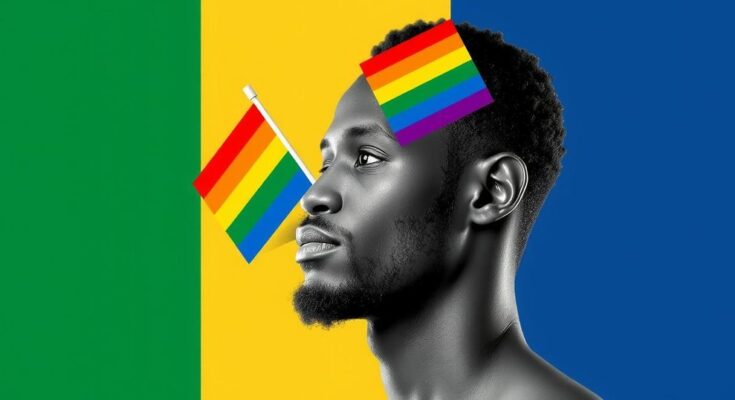John Dramani Mahama’s comments on the Human Sexual Rights and Family Values Bill provoked varied public reactions as he stated his potential support would depend on the bill’s details. While some criticized him for lacking a direct stance, others viewed his measured approach as politically wise given Ghana’s cultural context.
Recent remarks made by John Dramani Mahama, the National Democratic Congress (NDC) Presidential Candidate, regarding the Human Sexual Rights and Family Values Bill, 2024, have generated considerable discourse among the Ghanaian populace as the general elections approach on December 7. The Bill, which was passed by Parliament in February, pertains to LGBTQ+ issues and proposes severe measures including penalties for identification, advocacy, or support of LGBTQ+ individuals, alongside limitations on the operations of organizations dedicated to inclusivity and non-discrimination.
In an interview conducted by the BBC on December 4, Mr. Mahama articulated that his decision to endorse the bill as president would hinge on its specific contents. He emphasized the necessity of understanding the cultural and religious fabric of Ghana while addressing the issue, stating, “It is not an anti-LGBTQ+ Bill but a Family Values Bill that was unanimously approved by Parliament. The President should share any concerns about the bill and either refer it back to Parliament for further review or seek advice from the Council of State.”
This measured stance has elicited polarized reactions from the public. Some constituents have expressed their disappointment, perceiving his comments as ambiguous, while others defend his position as reflective of a prudent approach that considers the complex dynamics of Ghanaian society. A user on Facebook articulated, “You trust this man at your own peril. Simple yes or no—he was beating about the bush,” indicating discontent with Mr. Mahama’s lack of a definitive response. Conversely, proponents of his viewpoint argue that his strategy is politically advantageous, minimizing potential backlash against nonbinary individuals in the community.
The Human Sexual Rights and Family Values Bill, 2024, has drawn significant attention due to its controversial nature and the array of punitive measures it proposes for LGBTQ+ identification and advocacy. As Ghana navigates cultural and societal norms that are often conservative regarding sexual orientation, discussions surrounding this bill have become increasingly relevant, particularly in the context of forthcoming elections. John Dramani Mahama’s nuanced perspective on the bill illustrates the delicate balance between adhering to traditional values and addressing the rights and identities of marginalized groups. His approach is indicative of the broader challenges faced by politicians in reconciling these competing interests within the Ghanaian political landscape.
In conclusion, John Dramani Mahama’s statements regarding the Human Sexual Rights and Family Values Bill may yield significant implications for his presidential aspirations as well as the broader discourse on LGBTQ+ rights in Ghana. The mixed public reactions underscore the complexities that political figures encounter in addressing sensitive societal issues while navigating cultural expectations. This situation not only reflects Mahama’s position but also highlights the ongoing national conversation about inclusivity and human rights.
Original Source: www.ghanaweb.com




